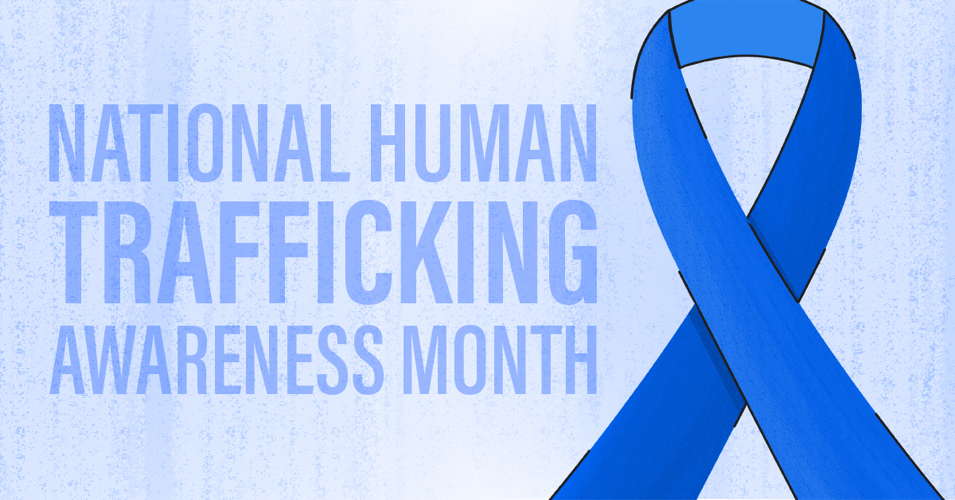January 1, 2024
January is nationally recognized as Human Trafficking Awareness and Prevention Month. Human trafficking can occur in any labor sector and can happen to men, women, and children of any age, race, sexual orientation, or country of origin. Trafficking is defined by force, fraud, or coercion. Human trafficking is an abhorrent abuse of power and violation of human rights. Decriminalize Sex Work (DSW), along with a number of other human rights and anti-trafficking organizations, fights to end human trafficking and exploitation through the decriminalization of consensual adult sex work.
This past October, the United Nations Working Group on discrimination against women and girls released a report calling for the full decriminalization of consensual adult sex work globally. The group cited a 2021 investigation that found that criminalization endagers and undermines the work of sex worker rights advocates who are best suited to do life-saving anti-trafficking work as a reason for supporting full decriminalization. We know that sex workers are the strongest anti-trafficking advocates and are uniquely suited to identify traffickers and their victims. However, due to criminalization, sex workers often fear reporting crimes to law enforcement due to fear of prosecution and victims of trafficking are often arrested for crimes they were forced to commit.
The conflation of consensual adult sex work and human trafficking has dire consequences. Notably, up to 96% of anti-trafficking resources in the United States are directed towards combating trafficking in commercial sex, neglecting survivors in other industries. Anti-trafficking raids often target sex workers under the guise of rescuing them, leading to arrests, court fees, and immigration consequences without concrete evidence of trafficking. Furthermore, survivors of trafficking are often arrested for prostitution. Criminal convictions prevent trafficking survivors from accessing critical social resources while attempting to recover from being exploited. A key solution to addressing human trafficking lies in the decriminalization of consensual adult sex work. Evidence suggests that resources currently used to criminalize sex workers could be more effectively redirected towards trafficking prevention.
Freedom Network USA (FNUSA) is the nation’s largest coalition working to ensure that trafficked persons have access to justice, safety, and opportunity. They utilize a human rights-based approach to combat trafficking. In a September 2021 position paper FNUSA states, “Human trafficking is fueled by racism, misogyny, poverty, lack of affordable housing, discrimination, and restrictive immigration policies which create vulnerability to labor and sex trafficking. Traffickers take advantage of these factors and use force, fraud, and coercion to extract labor from those who are left without protection in a range of industries from agriculture to hospitality to sex work. Criminalizing the purchase of sex does not address the underlying factors that cause people to become trafficked, does not provide the services and support needed by trafficking survivors, and does not increase the investigation and prosecution of traffickers.”
Current laws in the U.S. do little to address trafficking and exploitation, while instead punishing consensual adults engaging in the sex industry. To mitigate the harms caused by criminalization, legislators need to listen to survivors of trafficking and sex workers when legislating on prostitution and decision-making coalitions at all levels of government need to include survivors of trafficking and sex workers in their membership.
DSW Legal Director Melissa Broudo was recently interviewed for a Forbes piece advocating for a public health approach to prevent human trafficking. She is quoted as saying, “I advocate to remove criminal penalties that are forced upon sex workers and survivors of trafficking so that they are not further harmed by criminalization (arrests, police brutality, etc.) and the burden of a lifelong criminal record. Everyone deserves a chance at obtaining employment, housing, immigration status, as well as a life free of harm, violence, and stigmatization. Hopefully human trafficking awareness will bring these issues to the forefront and allow us to pass critical legislation to ensure survivors can live a life free of harm and gender-based violence.” This January, we hope that advocates, law enforcement, and legislators explore a human-rights and public health approach to address the egregious crime of human trafficking.

(Bark, 2020)
DSW Newsletter #51 (January 2024)
January Is Human Trafficking Awareness Month

VT Bill Aims To End Housing Discrimination Against Sex Workers

DSW Attends Adult Video News Awards in Las Vegas for Second Consecutive Year

DSW Welcomes MPH Intern

